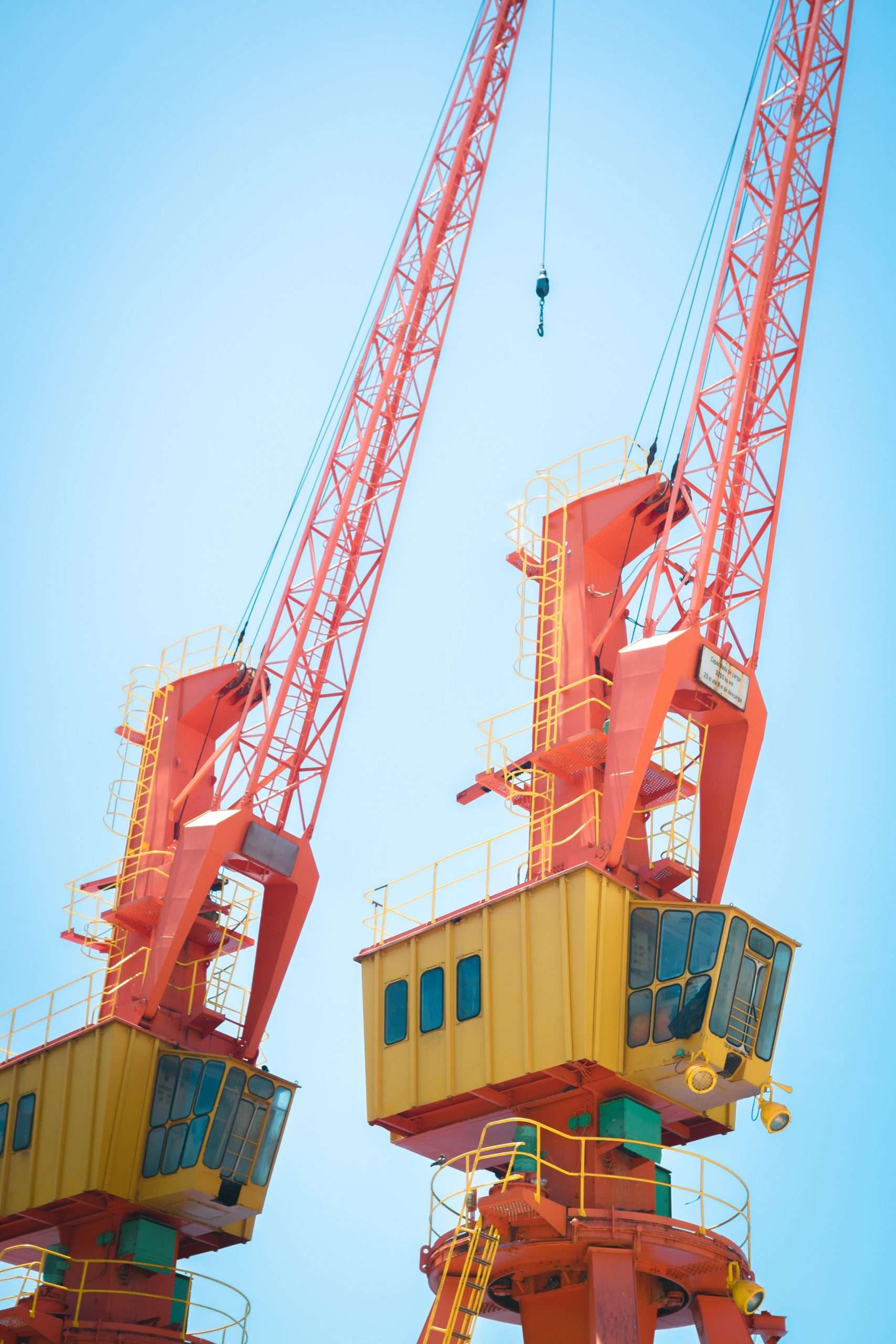All too often, the workplace exploitation of unskilled workers goes under the radar. There are many reasons that we need robust individual protections for unskilled workers at a policy level. This would ensure that people in the workplace are protected from bullying, extended hours, and other unfair treatment. When it comes to workplace exploitation, differences in social and economic mobility as well as access to opportunities can hinder protections. Not all employment sectors protect workers as efficiently as they should.
How does workplace exploitation affect workers’ mental health? And what can we do at a policy level to safeguard vulnerable people in these roles? Some industries seem more likely to mistreat workers and lower their mental health than others. What are the alternatives?
Mental Health & Thrivability
The importance of mental health cannot be understated. Mental health is an integral aspect of a Thrivable society. There are several key factors that can affect a person’s mental health or exacerbate pre-existing vulnerabilities in the workplace. A person’s socioeconomic status, exposure to trauma and social isolation or integration all matter. Their access to support systems and services contribute to mental health outcomes in a major way (Bradley-Adams, 2020). Ensuring well-being must happen in conjunction with adequate social welfare and social care measures. We must ensure that our society is Thrivable at a mental health level. This means addressing workplace exploitation.
Workplace Exploitation
Workplace bullying and stress has been a strong focus in Australia in the recent past. Recent years have seen many initiatives to combat suicide rates, depression, and anxiety in the workplace (Safe Work Australia, 2016) (Mental Health Commission, 2022). Despite these efforts, a number of studies have exposed that to differing degrees, workplace bullying still exists. These studies link workplace bullying strongly to the specific workplace cultures of different industries. In one study of healthcare workers, the fast-paced and high stress nature of the work meant greater exposure to bullying in the workplace. This also consequently meant greater burnout and mental health impacts for healthcare workers (Gray, et al, 2019). Depression and anxiety have cost the US economy more than $1 Trillion in lost productivity. It has also meant poorer quality healthcare in mental health services, due to worker stress.
Workplace Culture and Bullying
A study of Australian workplace culture demonstrated that psycho-social influences within the construction industry lead to a particularly high level of worker distress. There is often a disconnect between onsite work culture and WHS policy. As a consequence, the construction industry sees higher rates of worker suicides compared to other industries (Turner, et al, 2017). This is obviously a huge problem as no job is ever worth your life. These insights have been further corroborated by another study that demonstrated that the likelihood of bullying occurring is determined in no small part by factors such as organisational structure. The presence of difficult psycho-social influences as well as the specific workplace culture also play a huge role (Tuckey, et at, 2022).
Additionally, because unskilled workers are usually less educated, the effects of bullying are sometimes more severe. Unskilled workers are more likely to occupy roles of lower status. According to some research, unskilled workers are not only usually less educated but also have less monthly income, fewer work hours and have greater suicidal ideation (Ahn, et al, 2019).
A study from Germany demonstrated that bullying was far more common among unskilled workers than skilled workers and professionals (Lange, et al, 2019). In Australia, a different study demonstrated that within the construction industry, over a ten-year period, low-skilled workers had a higher suicide rate than skilled workers (Milner, et al, 2014). The suicide rates of workers in the construction industry were much higher for unskilled construction workers than skilled construction workers. It is also important to consider pre-existent mental illness and long-term lack of job security. Both of these factors link strongly to unskilled work (Maheen, et al, 2022).
The Cumulative Impact of Workplace Cultures
Together, these factors convey that extant workplace culture and a frequent lack of proper fidelity to WHS and Mental Health protection policies both create a higher likelihood of being bullied. This is only compounded if you are also an unskilled worker (Tuckey, et al, 2022). These conditions then show up clearly in data concerning suicide ideation (Maheen, et al, 2022). Further, the stress of bullying raises the risks of cardiovascular disease. Those exposed to too mcuh stress experience greater rates of cardiovascular disease. It is clear that workplace bullying is also a serious health and wellbeing crisis (Xu, et al, 2019).

What is The Government Doing?
There are many factors needed to create a healthy mind. According to the World Health Organization, one in eight adults or 12.5% had a mental illness at any given time during the year 2019 (World Health Organization, 2022). Other studies from Australia and the United States put figures at 26% (John Hopkins Medicine, 2022). Of the 43.7% of Australian adults that had experienced a mental health issue at some time in their life, 21% had issues over a 12 month period and 22.3% had issues for less than a 12 month period (Australian Bureau of Statistics, 2021).
There are many ways that government policy might address mental health issues in society. These include adequate social care strategies and social welfare, providing support within education systems, providing access to treatment and addressing systemic, family related and socio-economic related issues. These issues range from substance abuse and exposure to violence or trauma, to social isolation (Bradley-Adams, 2020). Workplace exploitation remains a major focus out of necessity.
Honouring our need to work without fear and enjoy supportive workplaces with positive workplace cultures is vital to creating mental health (Dextras-Gauthier, et al, 2012). Where fear, uncertainty, and the threat of exploitation exist abuse is much more easily enabled. Unclear boundaries and unclear expectations enable abuse to occur and are signs of inadequate policy frameworks and bad organisational structure.
Often, there is a divide between what exists at policy level and the actual workplace culture on-site (Feijo, et al, 2019). Greater intervention is required to ensure that policy does actually address the weaknesses in workplace structures that enable exploitation. Any extant divide between effective policy and workplace culture requires greater intervention at a management level (Tuckey, et al, 2022).
Policy Considerations
Research on bullying within high-income countries demonstrated that the likelihood of bullying was increased when either an authoritarian or Laissez-Faire structure was in place. In Laissez-Faire structures, employees are left to resolve issues themselves and there is a lack of clear leadership. There is often also a lack of clarity when it comes to roles (Feijo, et al, 2019), and the work is often too fast-paced (Gray, et al, 2019). Comparatively, where strong leadership and clear work roles existed bullying was less present (Feijo, et al, 2019).
This has implications which must be considered at policy level. WHS standards for mental health and wellbeing must consider that certain workplace structures effectively prevent bullying. High-paced sectors can magnify the likelihood that their workers stay protected (Gray, et al, 2019). Other initiatives like workplace mindfulness and better leadership practices promote good workplace culture. Interestingly, these techniques are already seeing use in sectors like commerce (Faeg, et al, 2022).
The Scope
When it comes to industries like the construction industry and other manual labour industies, pre-existent substance abuse is a significant factor and detracts from positive on-site workplace culture. Substance abuse creates negative psycho-social influences and does not adhere to effective WHS policies (Flannery, et al, 2019). Further education of construction professionals is required to address how this industry operates on-site, irrespective of WHS policies (Turner, et al, 2017).
Further measures to mitigate flouting these WHS policies are required (Turner, et al, 2017). This again can be linked to either Laissez Faire or authoritarian workplace cultures on-site (Feijo, et al, 2019). Negative workplace cultures can contravene existing policy due to ineffective on-site regulation and leadership (Flannery, et al, 2019). This in turn requires greater intervention (Flannery, et al, 2019). It also illustrates the importance that we eliminate Lassez-Faire and Authoritarian workplace cultures at a policy level (Feijo, et al, 2019). Again, unskilled workers end up disproportionately exposed to greater suicide risks and bullying. It is unskilled workers who stand to gain the most from intervention at a policy level (Lange, et al, 2019) (Milner, et al, 2014).
Sustainability of Industry
Some other factors to consider are in regard to sustainable industry and the way industries operate. In industries where workplace culture and substance abuse is common, operations are not sustainable and contravene mental health standards and WHS standards. In commercial fishing further considerations should be made. Namely, considerations should be made about how the abuse of unskilled workers ties into the general sustainability of commercial fishing, which already faces many issues globally (Decker-Sparks, et al, 2019). This includes issues pertaining to the environment, animal welfare, public health (Done, 2015), and workplace exploitation.

Offshore Labour and Unskilled Migrant Workers
In recent years, the extreme environmental impact of the global commercial fishing industry has been exposed. Parallel to this has been an exposure of extreme human rights abuses. This includes slavery which is a major part of the industry. When we look at the Thai and Taiwanese fishing industries, slavery and other abuses are rampant. However, these abuses are not limited to rogue vessels and ending these practices should be thought of as a global challenge (Vandergeest, et al, 2021). Whilst these abuses are particularly obvious and extreme in some locations, exploitation, forced labour and abuse in commercial fishing occurs across the globe (Murphy, 2017) (Simmons, et al, 2014).
Slavery and Abuse
Research from 2014 showed that in New Zealand, unskilled migrant workers in the fishing industry faced extreme abuse and maltreatment which was so severe as to be akin to slavery (Simmons, et al, 2014). Claims that New Zealand was leading the world in this regard were dashed. New Zealand only attained an efficient fishing industry through through the forced labour of migrant workers (Simmons, et al, 2014). A similar account has been given of abuses in Ireland’s fishing industry (Murphy, 2017).
Another study unveiled that lesser abuses were transpiring in the fishing industry in North-East Scotland. Migrant workers make up a considerable portion of the UK’s fishing industry. Many of these migrant workers worked extra hours without pay and were generally mistreated due to a harsh workplace culture (Djohari, et al, 2022). The issue is demonstrably global in nature.
Not Just One Industry
The abuse of unskilled workers is not limited to the fishing industry, although abuse in this industry is particularly extreme. Migrant workers are unfortunately also routinely mistreated in the UK’s food industry (Davies, 2020). The abuse is not severe enough to warrant criminal investigation but is still severe enough to cause worker distress and health issues (Davies, 2020). This makes it especially hard to tackle. Migrant workers are also abused in the European agricultural and food industry (Rye, et al, 2018). Many times, predatory employers are to blame. Predatory employment of migrant workers must be addressed at a policy level in many countries (Moyce, et al, 2018).

Source: Pexels.com
the freedom to work without fear and abuse
The freedom to work and support oneself or others without fear and abuse is an essential human right. Unskilled workers have fewer options, and less social and economic mobility because they are usually less skilled and educated. This means that many unskilled workers feel as if they are at the mercy of predatory and exploitative employers and have no choice but to work at unsafe or stressful workplaces (Moyce, et al, 2018).

Source: Pexels.com
why focus on the exploitation of Unskilled Workers?
The UN’s SDG 8 is named Decent Work and Economic Growth. This goal about ensuring the protection of unskilled workers from exploitation and ensuring human rights. SDG 8 is critical to creating a Thrivable society, which is one that works even for the most vulnerable people in our society. That includes unskilled workers.
Ending workplace exploitation and creating healthier workplaces will also create more efficient economic growth (United Nations, 2023). Workplace exploitation is terrible for both productivity and sustainability. Marrying strategies for better mental health outcomes for workers with improvements to workplace management and efficiency can create more productivity and economic growth generally.
Workplaces must reflect sustainability imperatives in a social sense, so that we are creating mental wellbeing for all workers. Bullying and exploitation must be challenged and addressed in order to create Thrivability on our planet.
To learn more about how The THRIVE Project is researching, educating and advocating for a future beyond sustainability, visit our website. You can follow our informative blog and podcast series, as well as find out about our regular live webinars featuring expert guests in the field. Sign up for our newsletter for regular updates.